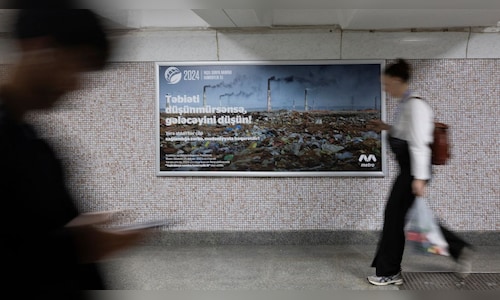
The concerns were raised during the closing plenary of the Subsidiary Bodies on November 16, 2024, with India delivering a pointed statement on the agenda surrounding the Sharm el-Sheikh Mitigation Ambition and Implementation Work Programme, the Ministry of Environment said in a statement.
India criticised developed countries for attempting to include mitigation parameters from the Global Stocktake at CoP28 into the MWP, arguing that such moves diverged from prior agreements and stalled progress.
Aligning with Like-Minded Developing Countries (LMDCs), the Arab Group, and the African Group of Negotiators (AGN), India called for greater adherence to established mandates.
ALSO READ: A short history of the COP Summit in pictures
Highlighting the disproportionate burden faced by developing nations, the statement noted, “We have seen no progress in matters that are critical for developing countries. Our part of the world is facing some of the worst impacts of climate change, with far lower capacity to recover from those impacts or to adapt to the changes to the climatic system for which we are not responsible.”
India emphasised the importance of respecting the MWP’s original mandate, which focuses on fostering dialogue and exchanging ideas without imposing new targets or punitive measures.
“The outcomes of the work programme must remain non-prescriptive, non-punitive, and facilitative while respecting national sovereignty and circumstances,” the statement underscored.
Expressing frustration over the lack of meaningful engagement by developed nations on finance-related issues, the statement posed a stark question: “If there are no means of implementation, there can be no climate action. How can we discuss climate action when it is being made impossible for us to act, even as our challenges in dealing with the impacts of climate change are increasing?”
India’s lead negotiator also pointed to a troubling trend of shifting goalposts by those with the greatest capacity to take action.
“We now have to meet our developmental needs in a situation of increasingly depleting carbon budget and increasing impacts of climate change. We are being asked to increase mitigation ambition by those who have shown no such ambition, either in their own mitigation ambition and implementation, nor in providing the means of implementation,” the negotiator stated.
India further warned against efforts to transform the bottom-up approach of the Paris Agreement into a top-down mandate, calling it an attempt to overturn the principles of equity and shared responsibility enshrined in the global climate pact.



